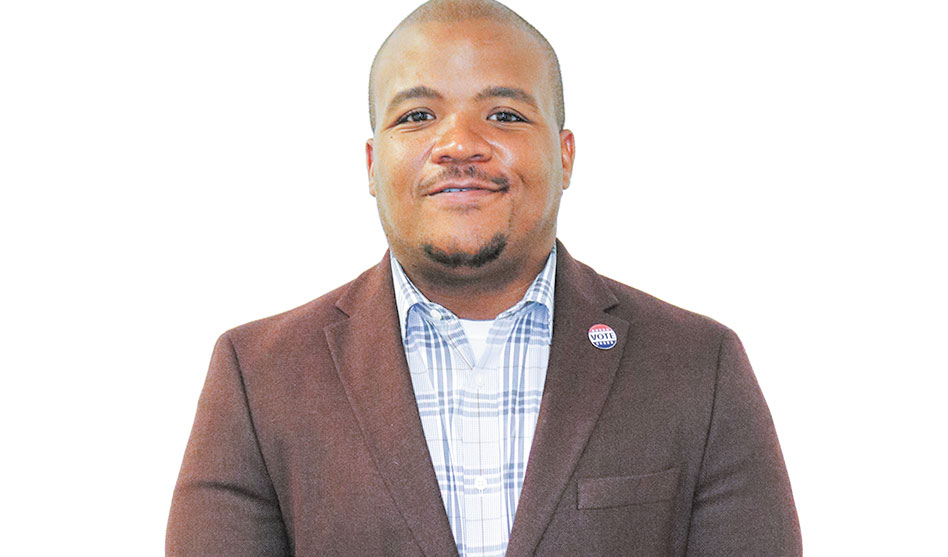Venton Jones
Bills that discriminate against LGBTQ community pass in last days of the legislative session
DAVID TAFFET | Senior Staff Writer
taffet@dallasvoice.com
Of the 140 anti-LGBTQ bills filed in the Texas Legislature this year, 132 of them died. That’s the good news.
But there was plenty of bad news that came out of the end of this session of the Legislature. Seven anti-LGBTQ bills passed and have been sent to the governor for signing. The bills range from drag bans to allowing the state to overturn nondiscrimination ordinances to limiting healthcare for trans youth.
SB 12 had all references to drag removed when it passed on the House floor. But vague and ambiguous language banning certain props, costume accessories and dance was added at the last minute in conference committee. Those additions could be applied not just to drag but from a wide variety of performances — even high school cheerleaders.
Despite the removal of language specifically addressing drag, many LGBTQ advocates have steadfastly opposed every version of SB 12.
“Our view is that drag has always been targeted in the bill because of the vague and undefined language that allows vigilante bad actors to police LGBTQIA+ spaces, such as drag shows,” noted Patrick Hanley, public policy and advocacy lead for Resource Center.
Lobbyists Mike Hendrix and Thomas Ratliff, who fought to sanitize SB 12 and protect drag performances, both said they have doubts that Abbott will sign SB 12 into law. He might allow it to become law without his signature, or he could veto it outright. Hendrix and Ratliff agree that if the governor vetoes the measure, it will only be because he wants to see it replaced with something more precise and more strict that specifically addresses drag.
Shelly Skeen, an attorney with Lambda Legal, said she believes Abbott will surely sign SB 12. “To appeal to his base, he will frame this as protecting young people, when we all know drag is not meant to, nor does it, appeal to the ‘prurient interest in sex,’ which the U.S. Supreme court has defined as ‘erotic, lascivious, abnormal, unhealthy, degrading, shameful or morbid interest in nudity, sex or excretion.’”
As for possible legal challenges, Skeen noted that the language in SB 12 “ambiguous,” and “most laws cannot withstand legal challenges when they are vague and ambiguous, especially when people who violate them are charged with or convicted of a crime.
SB 14 bans hormone blockers and hormone treatment for youth to treat gender dysphoria but allows those treatments among youth for other problems like precocious puberty. It also prevents gender correction surgery for trans youth that doesn’t happen anyway.
SB 15 extends the ban on transgender student athletes from competing in school sports from public schools — passed last session — to public universities.
SB 17 bans diversity, equity and inclusion programs at public universities.
SB 763 allows schools to replace trained and certified counselors with religious chaplains. Those pastors will not be required to have any particular degree, certification or experience.
HB 900, also known as the Book Burning Act, censors books in public school libraries including any books with LGBTQ themes, characters and content.
HB 2127 allows the state to preempt a broad range of local regulations. That includes nondiscrimination ordinances that include sexual orientation and gender identity. Dallas has nondiscrimination ordinances on the books but also has nondiscrimination written into the city charter. It’s not clear how this law will affect charter protections.
The good news is HB 890 died in conference committee when time ran out on the session. That bill had been amended to include “Don’t Say Gay” language restricting any discussion in public schools that includes sexual orientation and gender identity. But there’s always a special session.
Gov. Greg Abbott has already called a special session focused on property tax relief. The governor sets the agenda for special sessions. Lt. Gov. Dan Patrick asked the governor to expand the scope of the session to include some of the pressing issues of the day like Drag Queen Story Hour and posting copies of the Ten Commandments in public school classrooms.
Those bills and other conservative non-issues failed to pass both houses and died when the House and Senate added amendments that weren’t reconciled in committee.
Other conservative issues that didn’t pass include school vouchers that were seen as a threat by conservative rural Republicans because there are no alternatives to public education in their districts. Yet the issue remains a priority among suburban Republicans.
On the last day of the legislative session, various legislative caucuses named their freshman of the year. The LGBT Caucus named Rep. Venton Jones, D-Dallas, as its most effective newcomer to the House of Representatives.
Jones was effective in passing legislation and budget priorities regarding HIV funding. He had open discussions on the floor of the House about issues like including HIV testing as part of routine STD testing. And as the first legislator open about his HIV status, he did more to combat stigma than anyone in recent memory.
















